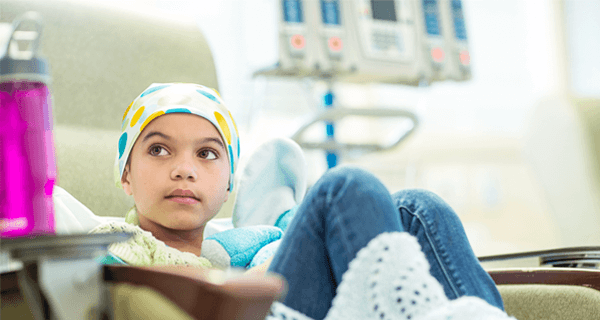Blog
Searching for cancer information online
18 August 2014

Have you ever left the doctor's office having being told you need to get an ultrasound for a suspicious lump and immediately searched online to see what it could be? Maybe it's more serious than the doctor thought?
Or maybe you've had a persistent cough or headache and instead of going to your doctor, you just Google the symptoms. As a self-confessed hypochondriac, I've made the panicked Google search many times before and I know I'm not the only one.
According to a survey conducted in 2010i, around 80 per cent of Australians seek health information online. Almost half admit using it to self-diagnose a health problem.
While being informed and interested in our health is great, what can be scary about these numbers is that when you search online, you will almost certainly come across inaccurate, misleading and sometimes deceptive information.
Many websites can downplay or exaggerate symptoms and offer cures that aren't scientifically proven or are outright scams. Acting on information from a site that looks plausible, but really isn't, can be harmful to your health.
As Search Engine Optimisation Manager at Cancer Council Australia, my job is to help ensure our "evidence-based" information can be found by people searching for cancer information online. By evidence-based, I mean information that is accurate because it is based on scientific studies which have been published in recognised medical and scientific journals.
You might ask why we would even need to do that. Well, over 90% of online journeys start within a search engine. The problem with that is anyone can create a professional looking website these days and plaster information and theories all over the web.
As smart as search engines are, they can't tell you who is a trusted or reliable source. You need to be able to make that distinction yourself.
Here are some tips we recommend you consider when searching for health or cancer information online:
Who has written the information and is it an accredited site?
Check if the website is owned by a reputable organisation. Has the site been accredited as a trusted health source? For example Cancer Council Australia's website is accredited by the HONcode standard for trustworthy health information. You can also look at the "About us" section to find out details about the organisation.
Can you check where the information has come from?
The website should tell you where the information came from. It should include references or links to books or journals they have used. Look at who the authors are and check whether they have credentials or qualifications. Are the publications being referenced recognised national or international journals?
Sometimes even official looking websites will include a lot of information in message boards, forums or comment streams where people offer their own advice. These are often not regulated and anecdotal so you need to be highly cautious of what you read here.
Be cautious of sites with no means of contact
If a site doesn't have a means to contact them such as an address, email or phone number, it can be a red flag that they don't want to claim ownership or accountability for their content. Look for a bricks and mortar address rather than a post-box.
What is the aim of the website?
Be wary of sites that may look very professional and appear to be providing you with cancer information, but are ultimately trying to get you to buy a product. If they use terms like "cancer cure" or need you to make a donation in order to find more information or provide clinical trials that sound too good to be true, step away from the computer!
Domain extensions
Different URL extensions can help you determine the reliability of a site. Sites owned by well-known health organisations, the government and educational institutions can generally be expected to provide trusted information.
- .gov.au = government website
- .edu.au = educational institution website
- .org.au = not for profit organisation
- .com/.com.au = commercial website
The key thing about searching online is to be vigilant about who and what you trust. It can be helpful and provide an opportunity for you to learn more about a health issue, but at the end of the day, talk to your GP or health professional to confirm what you come across on the web.
If you are seeking further advice about cancer, you can contact our professional support team on 13 11 20.
Tags
